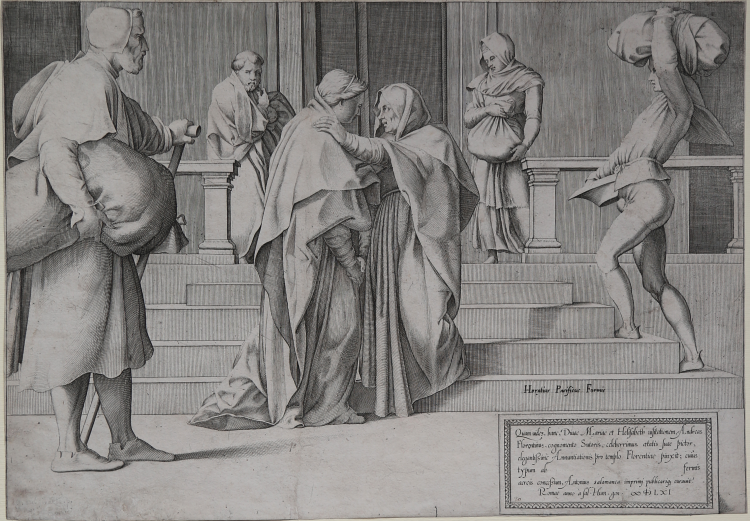




| Reference: | S30480 |
| Author | Anonimo |
| Year: | 1561 |
| Measures: | 400 x 298 mm |



| Reference: | S30480 |
| Author | Anonimo |
| Year: | 1561 |
| Measures: | 400 x 298 mm |
The Visitation, with Mary and Elizabeth embracing; after Andrea del Sarto.
Engraving, 1561, originally published by Antonio Salamanca.
Example of the third state, showing the address by Orazio Pacifici.
A good impression, on contemporary laid paper, trimmed to the platemark, light abrasions on verso, otherwise good conditions.
The work derives from the fresco by Andrea del Sarto in the cloister of the Scalzo in Florence.
Andrea del Sarto completed the decoration of the cloister of the Scalzo iconography depicting episodes that begin the story of the life of John the Baptist: "The Visitation" (1524) and "The Birth of John the Baptist" (1526). The cycle in its long-running, with an emphasis recorded master the various stages of painting sartesca, in a sequence stylistically varied and rich that summarizes the history of Florentine painting of the first three decades of the sixteenth century. The fresco has two preparatory drawings: one to be kept in Dijon at the Musee des Beaux Arts, depicting the details for the figure in the left foreground of the composition; the other kept in New York at the Pierpont Morgan Library, with sketches for the man on the stairs on the far right of the scene.
Andrea del Sarto, aka Andrea d'Agnolo di Francesco di Luca di Paolo del Migliore Vannucchi (Florence, July 16, 1486 - Florence, September 29, 1530) was an Italian painter.
Painter Giorgio Vasari called him "without errors", praising the perfection of form, speed and safety of execution. Such praise Vasari, however, appears now against a reductive artist, heir to the Florentine tradition, he faced a variety of issues and he developed the formal elaboration.
He was a master of the entire first generation of Mannerist, Pontormo and Rosso Fiorentino in the first place.
An exemple with the address of Lafrery is preserved in the British Museum.
A very rare work, not described by the repertoires.
Anonimo
Anonimo